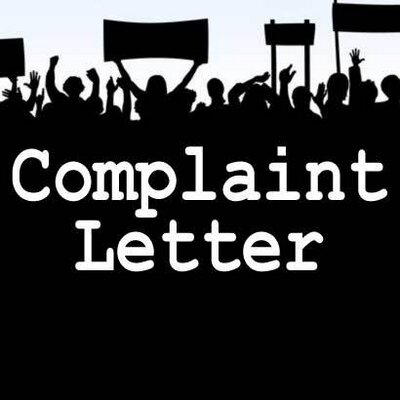A well written complaint letter will often get attention more effectively than a phone call or email message. There is something about a written letter that implies you are serious about your complaint.
First make sure you have the correct address to send the letter to an appropriate individual or office within the business. If you are unsure to whom the complaint letter should be directed you should call the company or check the company’s web page to identify the appropriate person or office to which a complaint letter should be directed.
A well written, courteous complaint letter should clearly state the purpose of your letter and the outcome or resolution you would like to see to rectify your complaint.
It is always a good strategy to begin your letter with a positive comment. For example, if you have had positive experiences with this company in the past mention those positive experiences.
State diplomatically, plainly and directly the reason or cause for your complaint and what you would like to see the business do to address your complaint including a reasonable timeframe for the suggested resolution. Avoid using sarcasm or threats. Keep in mind, in most instances, the reader of your letter will not be the person responsible for the problem you are complaining about so why insult or alienate them. Your chances for an amicable resolution are better if the person responsible for resolving complaints is on your side.
Make sure the facts in your complaint letter are accurate and legitimate. Include important dates, locations and other relevant information such as the specific product numbers or specific type of service and dates of service you are complaining about. Include with the letter copies of any relevant documents such as invoices or receipts (never send the originals).
Conclude your complaint letter by mentioning that you would like to continue doing business with the company and are looking forward to the company resolving your complaint in such a manner that it is possible for you to continue to have confidence in their product or service.
Emphasize in your conclusion why it is in the company’s best interest to grant your request. Usually mentioning how important it is to maintain the company’s good reputation for quality products or services is appropriate. Sometimes it may be appropriate to appeal to the company’s sense of fairness or justice. Close by thanking the reader in advance for taking the time to resolve your complaint.
Make sure your letter is dated, written clearly and concisely and signed. Type the letter on a computer that has a spelling and grammatical check. Nothing distracts from your message more than misspelled words or grammatical errors.
Keep a copy of the complaint letter.
If you do not receive a response within the timeframe you provided in the letter consider a second letter to the same individual or office asking them to follow up on your complaint and mentioning the next steps you are going to take if you do not hear from them in a reasonable time. A second option is to immediately send a letter to someone higher up in the organisation with a copy of your original complaint letter.


